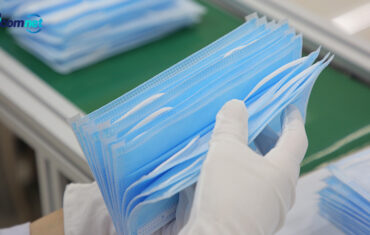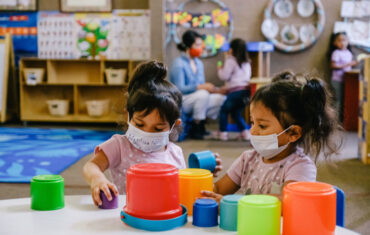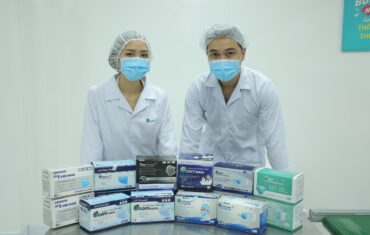Face mask help reduce the transmission of Covid 19 by interfering with the spread of virus-laden droplets ejected from the nose and mouth. The CDC in the US recommends “that people wear cloth face coverings in public settings and when around people who don’t live in your household.” Similarly, the WHO advises it is “prudent to encourage the use of fabric face masks in public places where there is community transmission.” Local authorities around the world have also implemented mandatory measures for wearing face masks to help reduce the virus’s spread.
How do face masks work?
Current research on the transmission of the SARS-CoV-2 virus now emphasises that it is an airborne illness. This means the virus can be found in numbers sufficiently large to pose a risk when expelled inside droplets small enough to drift a reasonable distance and reach new hosts. The greater the number of airborne virus particles hanging around over any given period of time. Then, the greater the chance one will make it into another person’s airway. Large Covid 19 outbreaks of the illness are typically the result of single transmission events. Face mask has the potential to prevent a large number of new infections.
Do I need to wear a face mask if I don’t feel sick?
Nearly half of all people infected with SARS-CoV-2 do not experience any symptoms. These asymptomatic carriers of the virus continue to shed the pathogen as they breathe, without any knowledge of their doing so. Without a clear way to determine who is infected and who isn’t, a population can keep infection rates down by assuming everybody is capable of transmitting the virus.
In other words, everybody should wear face mask to protect their community. Even if you’re certain there’s no chance you’re carrying the virus, wearing a mask is a sign of solidarity. Therefore, making its use more acceptable to others.
What kind of face mask should I wear?
The nature of the weave or mesh of fabric making up face mask. As well as its closeness of fit against the face, determine the chances droplets will exit an infected person. And make it into a new host by intercepting its movement before it even has a chance to get airborne. People consider any kind of face mask in front of the nose and mouth to be better than no barrier at all.
Will a face mask make it harder for me to breathe?
No. There is no evidence that wearing face mask for even prolonged periods significantly compromises oxygen for a healthy wearer. Also, it does not reduce their ability to release carbon dioxide.






